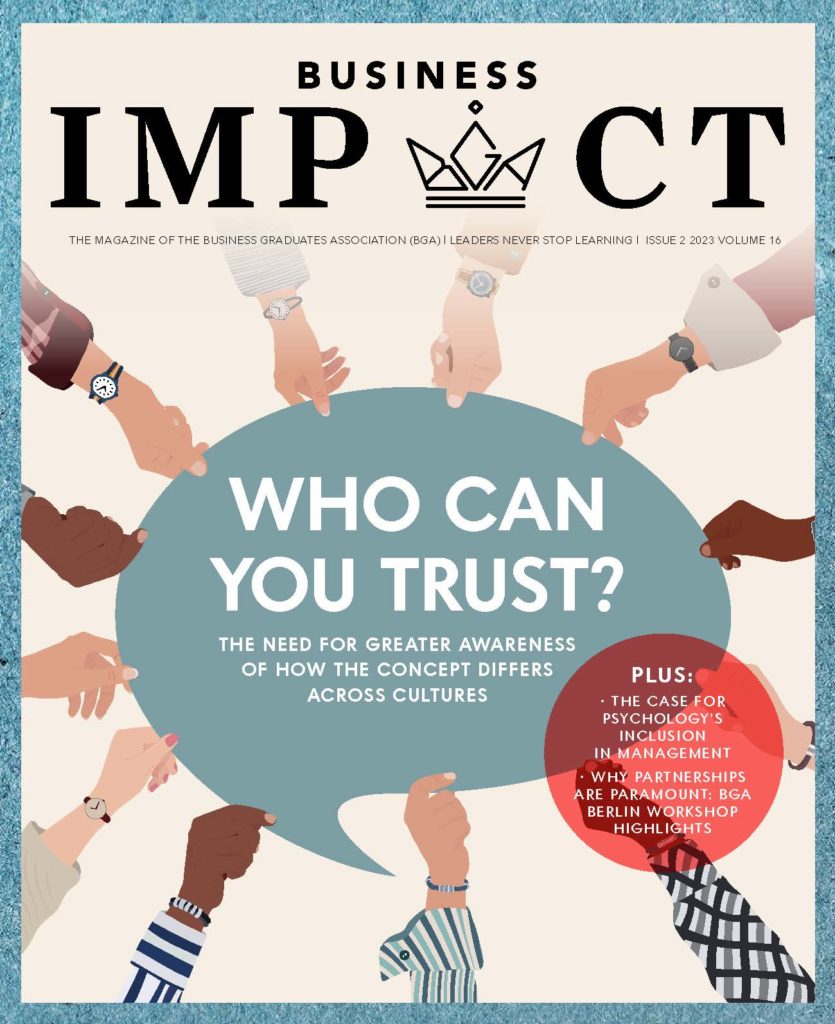Do you have the right skills to thrive in today’s business world?


I still remember the observation made by my professor during one of my executive MBA residentials that “the fundamental objective of any organisation is only to make money.” All that mattered was a laser-like focus on customers, competitors and markets. Sure, the observation raised eyebrows for those students from the public and third sectors. For me, the professor’s remarks summed up how the learnings at many business schools are now built on a mindset that hasn’t adapted and instead, now risks graduates struggling to survive, professionally.
Stymied by tradition
There are a few leaps that professionals need to make in their careers for them to be successful, none of which are easy. Middle managers, for example, are often confronted by an awkward realisation. While excelling in the employment of technical skills got them a bump up the ladder, they need to gain new skills that are more general managerial in nature for them to swim and not sink.
The higher up the ladder you seek to progress, the greater the importance of the skills taught in business schools. Countless careers have benefitted from aspiring senior leaders experiencing great MBA teachings and breaking organisations down into the ‘critical’ functions and assets that contribute to the creation of value. With an MBA, so the advertising often goes, you were assured of future success. However, there is a problem with that way of thinking. An existential problem.
Witnessing the storm
Don’t get me wrong, the skills acquired at business school have been extraordinarily important for many. Nevertheless, they were important for another time. For the glorious past.
Life inside and outside organisations is no longer as certain and uncomplicated as we’ve been educated to believe. The pace of change is frenetic and profound and it’s not just because of the seemingly unabated advancements in technology – there’s so much more.
We are experiencing a storm of interconnected social, environmental, technological and economic challenges and opportunities. Issues that we have known of for years are only getting more problematic – so much so that PwC’s recent Annual Global CEO Survey highlighted that more and more CEOs are worried that their organisation will become extinct within 10 years if they remain on their current paths. Not only has normal left the building, but it has also kicked over the tables and violently slammed the door on the way out.
Consequently, many business school graduates are confronted by another awkward realisation: the skills and mindsets that successfully got them into senior roles won’t be the skills and mindsets that will help them to thrive in a world that is increasingly uncertain, complex and tumultuous.
Making the greatest of leaps
There is no panacea. However, here are five skills necessary if you are to thrive in the storm:
1. Sharing is daring: Traditional leadership styles are buckling. Leaders no longer have enough time, perspectives, or expertise to understand the context their organisation faces and make truly well-informed decisions. Leadership must now be collaborative, sharing control and power with respect to resolving your organisation’s biggest issues. Here, the benefits can be significant because innovative solutions regularly spring from a ‘collision’ of people with the same goals, but different perspectives, trying to find a way forwards. In addition, your teams’ level of engagement is likely to grow with the realisation that their expertise is valued.
2. The bigger picture: Thanks to business schools, we’ve excelled at breaking the bigger picture down into small, readily absorbable pieces. But like a racing horse with blinkers on, we’ve remained blinded to acknowledging the importance of all the pieces in the puzzle, as well as how these pieces are related. We need to be truly holistic in our thinking. Consideration not only of the market but also of today’s non-market social and environmental forces is just good risk management, provided that a multidisciplinary approach is taken rather than, say, just involving marketing and finance teams. In short, investing in systems thinking is important. Ask yourself how current or emerging political, economic, social, technological, legal and/or environmental factors, individually or collectively, affect your business?
3. Shaping the future: In general terms, we tend to be quite poor at planning for the future and place too much emphasis on what we see in the here and now, or what we deduce from the weight of history. Yet, the past is no longer a credible guide for how the future will pan out. That is why ‘future-thinking’ – or transformative foresight – has become so critical. This mindset allows us to anticipate, rather than predict, the possible future(s) that may lie ahead of us, allowing us to be better prepared. Furthermore, good foresight allows us to also confront whether our traditional thinking still has the right ‘fit’ with what is anticipated to come our way.
4. Faster, stronger: Just as we need collaboration to find direction in relation to our biggest problems, we also now need agility to implement the overarching direction. We cannot remain tied to a long-term delivery of initiatives in the wake of frenetic change; monitoring, evaluating and adapting must now take place at shorter frequencies than before. This is impossible to achieve in traditional organisational hierarchies – there just isn’t the time. Decentralisation and courage are key.
5. Ourselves: I know that resilience has become almost a cliché in describing the way we must bounce back from shocks, bumps and crises. However, it is important to accept that we need to transcend tradition and appreciate that ‘normal’ isn’t returning. I can’t imagine what pressures you may be facing right now, but I believe that we haven’t seen anything yet. For you to be the best for your organisation and your loved ones, truly looking after yourself is vital. As is accepting that you may not always be superhuman.

David Ross is an international strategist, founder of Phoenix Strategic Management and author of Confronting the Storm: Regenerating Leadership and Hope in the Age of Uncertainty. He is an executive MBA (EMBA) graduates of the Australian Graduate School of Management (AGSM), part of the University of New South Wales (UNSW) Business School
Read more Business Impact articles related to
management skills

Do you have the right skills to thrive in today’s business world?
EMBA graduate and international strategist David Ross questions whether a traditional business school education holds up to today’s shifting business realities and pressures, before offering five management techniques and approaches that can help you succeed

Balancing hard and soft skills to succeed in management
Effective leaders are those that display the right balance of hard and soft skills, says Allcourses’ Lauren Wakeling. Here’s how to go about developing this complementary blend

How can business schools help students balance academics and real-world experience?
How can business schools help students develop real-world skills that go beyond the technical and theoretical? Woxsen University’s Dr Hemachandran and Dr Raul Villamarin Rodriguez outline seven strategies that can enhance student outcomes
Want your business school to feature in
Business Impact?
For questions about editorial opportunities, please contact:
Tim Banerjee Dhoul
Content Editor
Business Impact










































